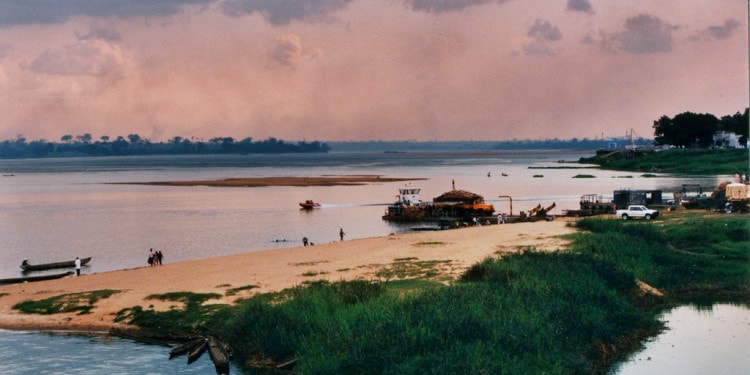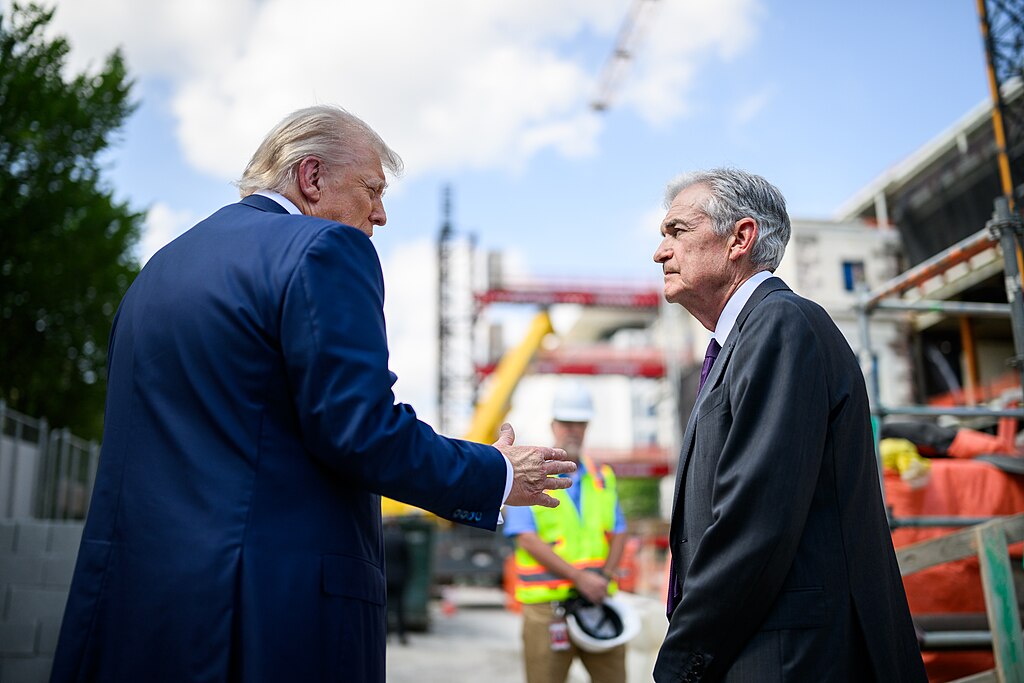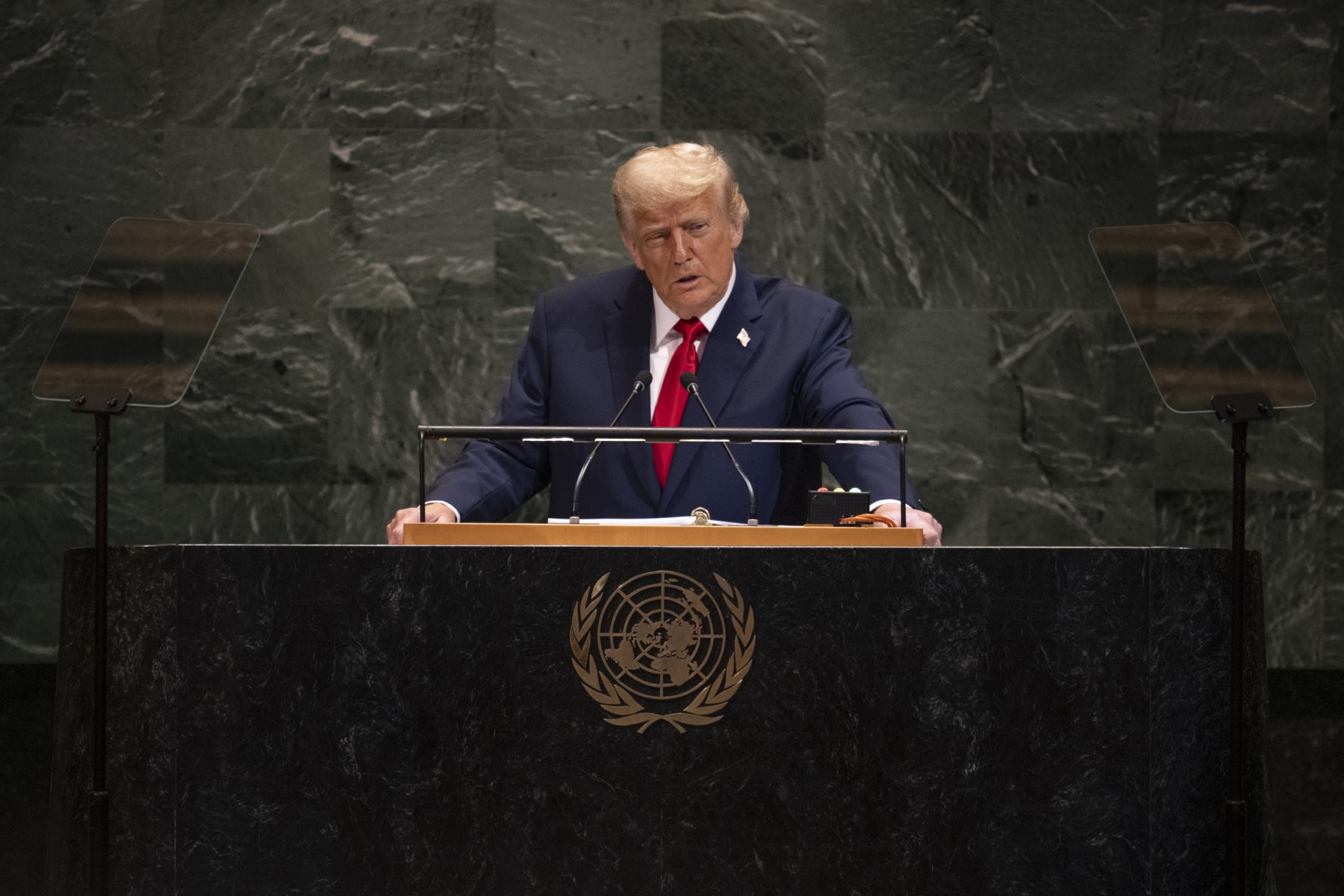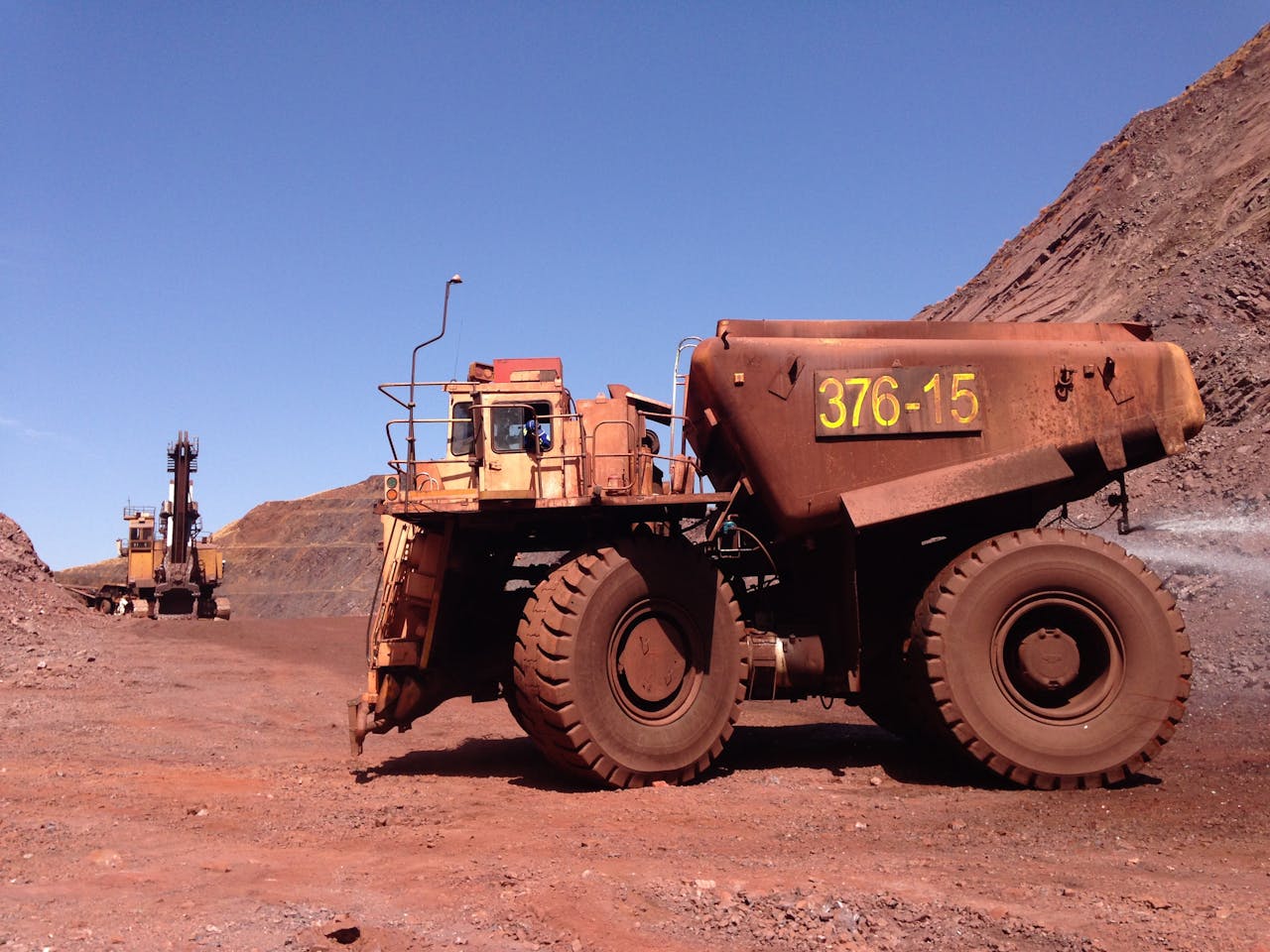May 1990, on the road to Yalinga . A potholed dirt road , plunging straight forward, in the middle of nowhere, between Bangui and Yalinga, a small town lost in the south-east corner of Central Africa. Sheets of fire weave across the low, sunburned hills in long, narrow lines, fed by the yellowed savanna grass. The flames are broken now and then by broad, dried riverbeds and by the road itself. Tall termite mounds like gray sentinels on the wayside, rise above the fire, unscathed .
 In the photo: The road between Bangui and Yalinda – Photo credit: DFID / Simon Davis
In the photo: The road between Bangui and Yalinda – Photo credit: DFID / Simon Davis
And on that road, like a lonely beetle scuttling through the flames, a beige Land Rover forges ahead, raising a cloud of dust. Two white and blue medallions stuck on the side doors announce that the Land Rover is United Nations property .
Inside, five people, two black, three white. One woman, four men. The driver is African, fat and sweating under his red wool knit cap pushed low on his forehead. Next to him, in the only comfortable passenger seat, the project manager is half-asleep, a contented half-smile hovering on his lips. He has a powdery white beard framing his face in a reverse halo, like Father Christmas. In the back of the car, jostled by the Land Rover’s unforgiving suspension, the rest of the mission members grimly hold onto their hard seats with both hands.
 In the photo: A young man tending his livestock in Bangui, Central African Republic. 22 November 1998 Bangui, Central African Republic – Photo credit: UN Photo/Evan Schneider
In the photo: A young man tending his livestock in Bangui, Central African Republic. 22 November 1998 Bangui, Central African Republic – Photo credit: UN Photo/Evan Schneider
Of the two men sitting in the back, only the African looks cool, his white shirt is spotless, his trousers well pressed. He is an important local Government official. His black leather shoes are highly polished, like an elegant clergyman’s. The other man, much younger, is sloppily dressed in patched jeans and a wrinkled T-shirt sticking to his back. Occasionally he pulls out a dirty handkerchief to wipe beads of sweat running down his forehead and unshaven cheeks. He wears the heavy but sensible desert boots dear to all European experts working in Africa.
The woman, unlike her white companions, is as calm and composed as the dignified Government official. She is tall and thin like a model. Her well-cut safari dress, khaki color with pleated skirt, is the latest fashion in Paris that year. A discreet gold chain twines around her neck, and her well-manicured long fingers sport several rings, including an unusual one, with a tiny, finely chiseled Japanese ivory turtle. In spite of the dust and wind coming in from the rolled down windows, her short blond hair, smartly streaked, looks as though she’s just come out from the hairdresser’s.
She is the mission leader.
Ahead, the fire has suddenly drawn a shimmering curtain across the road. The flames leap from one side to the other in a spray of sparks.
” We can’t go on”, growls the white bearded man – he turns around to talk to the woman, his eyes sparkling, you can tell he’s enjoying the emergency and wondering how she’ll react – “the fire is getting closer. But we have a problem. One of our jerrycans has a leak.” He is referring to the couple of containers on the car’s roof, used to store the necessary fuel to reach their destination, Yalinga is some six hundred kilometers from Bangui. “We have another two hundred kilometers to go, that means we still have enough fuel to turn around and go back to Bangui. Just enough, but we must decide now.”
 In the photo: UN convoy – Photo credit: SRSA
In the photo: UN convoy – Photo credit: SRSA
The woman, instead of responding right away, glares at him. He reads her thoughts in her cold, contemptuous eyes and suddenly feels uncomfortable. “I’m sorry about the leak .” His hands twitch helplessly. “ It’s very small, barely noticeable, and under normal circumstances, it wouldn’t matter. But with the fire and heat so close to the road, it’s dangerous. The fuel could catch fire and explode over our heads.”
The woman frowns and doesn’t respond.
“I’m the project manager, it’s my duty to see that you are safe.”
“Safe?” Her voice is harsh.
“Yes, safe – remember, this is Africa. You know what I mean. Do in Rome as the Romans…” He signals to the driver.
The car stops.
A very small leak… and all my field trip schedule gone to hell, she thinks angrily. I’ve got to go to Geneva next week for the International Expert Meeting on Gender Analysis. I can’t let a little thing like this stop me, the mission must be finished on time.
She leans forward, addressing herself to the project manager in a low voice. “If we go back now, can we return to Yalinga tomorrow ?”
The old man sighs. “We can, but what’s the use ? Tomorrow is Saturday. This means we could only start our field tour on Sunday morning. And both the school and research center you want to visit are closed. You wouldn’t find any of the project staff to talk to, or, for that matter, any student. After all, they are the project beneficiaries.”
“Exactly. I need to see them. How else can I evaluate the project? And I have to be back in the office on Monday. I’ve wasted my time coming here.”
The man shrugs. “You’ve met the authorities in Bangui, you heard them. They like the project. And Mr. Ngobogo is accompanying us, he knows the project, he can tell you.” He is referring to the grave African sitting in the back who nods knowingly.
 In the photo: Loading equipment onto UN jeep – Photo credit: Triangle
In the photo: Loading equipment onto UN jeep – Photo credit: Triangle
The woman shrugs. “Authorities always like projects! It’s not enough, you know that. This is a project evaluation and I’m going to see it through. I have to meet the project target group – both the students and the researchers you have trained..”
The project manager bows his head.
“But why the leak ?” she murmurs, irritated.
He adopts a paternalistic manner. “I try to run this project as best I can, but this isn’t the United States. Sorry, my dear girl.”
He looks at her meaningfully – damn these Americans, especially American women. They always want to get their way. A pain in the ass. And he continues , “The leak is tiny and unimportant, except when we run across a bush fire like this.” That’s the word he uses for African wildfire, he’s Australian, he knows all about bush fires. “Then, there’s danger. Obviously.”
“There must be a way to plug it.” She isn’t going to give up her finely tuned schedule .”Do you have any chewing gum ?” The project manager shakes his head.
She turns around and looks at everyone. “Anybody has chewing gum?”
No one has any chewing gum. Or anything at all to plug the leak.
Vee ( short for Victoria, a name she detests) frowns again and takes a decision. Decision-making is her prerogative, and no one is going to stop her from using it.
She turns to the United Nations Development Programme officer, sitting across from her. A young man in his late twenties, a tall, lanky Dutchman, with a thick lock of wavy hair shading his baby blue eyes, he is a pure product of Wageningen University, on his first tour of duty in Africa. An idealist, you can bet on it.
“You’re the youngest man here”, she says, “you climb on top of the Rover and put your finger on the leak . And keep it there. We go on.”
For a moment, the young man looks disbelievingly at the woman, at the smart figure, the fine golden hair, the long legs – everything he had found attractive so far although she is several years older than he is. Then he sees the cold grey eyes staring at him, the determined thin line of the mouth, the arrogant flare of the nostrils. And the frown.
He opens his mouth to protest. No sound comes: duty calls, the woman is, for the purpose of this mission at least, his hierarchical superior.
 In the photo: On the road again
In the photo: On the road again
It is his duty to climb on the car roof and plug the leak with his finger. Like an idiot. Holding his breath, closing his eyes when the fire sparks land on him.
That evening they arrive in Yalinga, as planned.
Based on a true story, as reported by one of my colleagues in the FAO Evaluation Service. The event took place twenty-five years ago. Now development experts are transported in comfortable air-conditioned Land cruisers, but occasionally, small leaks occur. Problems are the same. People haven’t changed. Neither has the hierarchy which governs them. Claude F.














